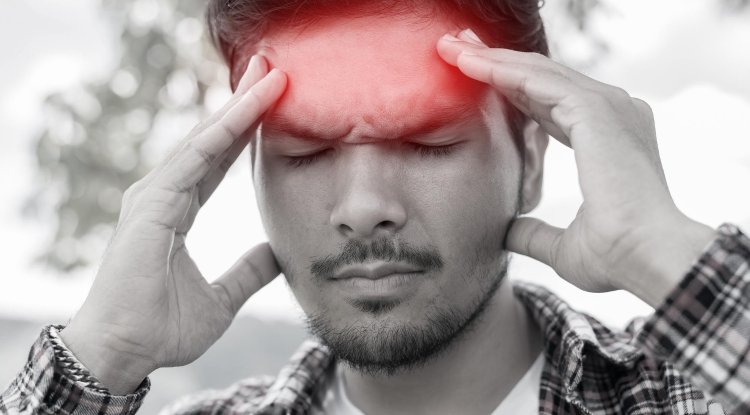9 Secret Strategies to Calm Your Mind and Embrace Peace Naturally
The journey to reducing anxiety naturally involves incorporating various practices and lifestyle changes that contribute to overall well-being. Each strategy discussed offers unique benefits and can be tailored to fit your individual needs. By integrating these techniques into your daily routine, you can create a holistic approach to managing anxiety and enhancing mental resilience. Consistent application of these practices helps build a foundation for mental wellness. It’s essential to remember that while these natural methods can significantly aid in reducing anxiety, they work best when combined with other forms of support, such as professional counseling or therapy if needed. Regularly engaging in these strategies can foster a more balanced, peaceful state of mind and improve your overall quality of life.

- Embrace the Power of Mindful Breathing
Breathing may seem like the simplest act, yet it’s one of the most potent tools for reducing anxiety. The key lies in mindful breathing, a practice that focuses on your breath and helps anchor you in the present moment. This technique calms the nervous system, reducing the body’s stress response and fostering a sense of relaxation.
To practice mindful breathing, find a quiet place where you can sit or lie down comfortably. Close your eyes and take a deep breath in through your nose, allowing your abdomen to rise. Hold the breath for a few seconds before exhaling slowly through your mouth. As you breathe, pay attention to the sensation of the air entering and leaving your body. Repeat this process for several minutes, focusing solely on your breath.
Research supports the effectiveness of mindful breathing. Studies have shown that controlled breathing can lower cortisol levels (the stress hormone) and decrease anxiety symptoms. Regular practice of this technique can also improve overall emotional resilience, making it a valuable tool for managing daily stressors.
- Discover the Benefits of Physical Activity
Exercise is not only beneficial for physical health but also plays a crucial role in mental well-being. Engaging in regular physical activity helps reduce anxiety by releasing endorphins, which are natural mood lifters. Exercise also decreases levels of adrenaline and cortisol, both of which are linked to stress and anxiety.
Different types of exercise can be effective for anxiety reduction. Aerobic activities such as running, swimming, or cycling boost cardiovascular health and help manage stress. Yoga and tai chi, which incorporate gentle movement with deep breathing and meditation, can also be particularly effective in calming the mind and reducing anxiety.
Aim for at least 30 minutes of moderate exercise most days of the week. Even a brisk walk can provide significant benefits. The key is to find an activity you enjoy so that exercise becomes a regular, enjoyable part of your routine rather than a chore.
- Nourish Your Body with Anxiety-Reducing Foods
The foods you eat can significantly impact your mood and anxiety levels. A balanced diet rich in nutrients supports brain health and can help regulate emotions. Certain foods have been shown to have specific benefits for reducing anxiety:
- Omega-3 Fatty Acids: Found in fatty fish like salmon and sardines, omega-3s have anti-inflammatory properties that can help stabilize mood and reduce anxiety. They also support brain function and overall mental health.
- Leafy Greens: Spinach, kale, and other leafy greens are rich in magnesium, which helps regulate neurotransmitters and promotes relaxation. Magnesium deficiency has been linked to increased anxiety.
- Probiotics: Foods like yogurt, kefir, and fermented vegetables contain probiotics that support gut health. Emerging research suggests a strong connection between gut health and mental well-being, with probiotics potentially playing a role in reducing anxiety symptoms.
Incorporate a variety of these foods into your diet to support both physical and mental health. Avoid excessive consumption of caffeine and sugar, as they can exacerbate anxiety symptoms.
- Create a Restful Sleep Environment
Quality sleep is essential for mental health and anxiety management. Poor sleep can exacerbate anxiety symptoms, making it harder to cope with stress. Establishing a restful sleep environment and a consistent sleep routine can significantly improve your sleep quality.
Start by creating a calming bedtime ritual. This might include activities such as reading, taking a warm bath, or practicing relaxation techniques. Make sure your sleep environment is conducive to rest: keep your bedroom cool, dark, and quiet, and invest in a comfortable mattress and pillows.
Avoid screens and electronic devices at least an hour before bed, as the blue light emitted can interfere with your body’s natural sleep-wake cycle. Instead, engage in relaxing activities that help signal to your body that it’s time to wind down.
Aim for 7-9 hours of sleep per night. Consistent, quality sleep helps regulate mood, improves cognitive function, and enhances overall well-being.
- Cultivate a Mindful Meditation Practice
Meditation is a powerful tool for managing anxiety. It involves training the mind to focus and redirect thoughts, which can help break the cycle of rumination that often accompanies anxiety. Meditation encourages relaxation and mindfulness, allowing you to approach stressful situations with greater calm.
There are various forms of meditation, including guided meditation, loving-kindness meditation, and body scan meditation. Guided meditation involves listening to a narrator who provides instructions and imagery to help you relax and focus. Loving-kindness meditation involves directing positive thoughts and well-wishes towards yourself and others, promoting emotional warmth and compassion.
Start with just a few minutes each day and gradually increase the duration as you become more comfortable with the practice. Regular meditation can lead to long-term benefits, such as improved emotional regulation and reduced anxiety.
- Engage in Creative Expression
Creative activities can be a therapeutic outlet for managing anxiety. Engaging in hobbies such as painting, writing, or playing music allows you to express emotions in a non-verbal way, which can be particularly helpful when dealing with overwhelming feelings.
Creative expression encourages mindfulness and can serve as a distraction from anxious thoughts. It also provides a sense of accomplishment and can boost self-esteem. The act of creating something can be meditative in itself, helping to calm the mind and provide a sense of inner peace.
Whether it’s doodling in a journal, composing a song, or trying your hand at a new craft, find a creative outlet that resonates with you. Incorporate it into your routine as a way to manage stress and promote mental well-being.
- Build a Supportive Social Network
Social connections are vital for mental health. Having a strong support network can provide comfort, reduce feelings of isolation, and help manage anxiety. Building and maintaining relationships with friends and family members offers emotional support and practical assistance when needed.
Engage in activities that allow you to connect with others, such as joining clubs, attending social events, or participating in community groups. It’s also important to nurture existing relationships by spending quality time with loved ones and communicating openly about your feelings.
If you find it challenging to reach out to others or feel overwhelmed by social interactions, consider speaking with a therapist or counselor who can help you develop social skills and build confidence in managing anxiety.
- Practice Progressive Muscle Relaxation
Progressive Muscle Relaxation (PMR) is a technique that involves tensing and then relaxing different muscle groups in the body. This practice helps to release physical tension and promotes a sense of calm. By systematically working through muscle groups, PMR encourages you to become more aware of physical sensations and manage stress more effectively.
To practice PMR, start by finding a comfortable position, either sitting or lying down. Begin with your feet and work your way up through your body, tensing each muscle group for about 5-10 seconds before slowly releasing the tension. Focus on the contrast between the feelings of tension and relaxation.
Regular practice of PMR can help reduce physical symptoms of anxiety, such as muscle tension and headaches, and contribute to overall relaxation and well-being.
- Explore the Healing Potential of Nature
Spending time in nature can have profound effects on mental health and anxiety levels. Natural environments offer a sense of tranquility and can help reduce stress and improve mood. Activities such as hiking, gardening, or simply walking in a park allow you to disconnect from daily stressors and reconnect with the calming aspects of the natural world.
Research has shown that exposure to nature can lower blood pressure, reduce cortisol levels, and improve mood. Nature-based therapies, such as ecotherapy or forest bathing, emphasize the mental healt
Disclaimer: The information provided in this article is for educational purposes only and should not be considered medical advice. If you have any health concerns or are experiencing symptoms, it is important to consult with a healthcare professional, such as a doctor or clinic, for proper diagnosis and treatment. Always seek the advice of your doctor or other qualified health provider with any questions you may have regarding a medical condition. Do not disregard professional medical advice or delay in seeking it because of something you have read in this article.
What's Your Reaction?





















